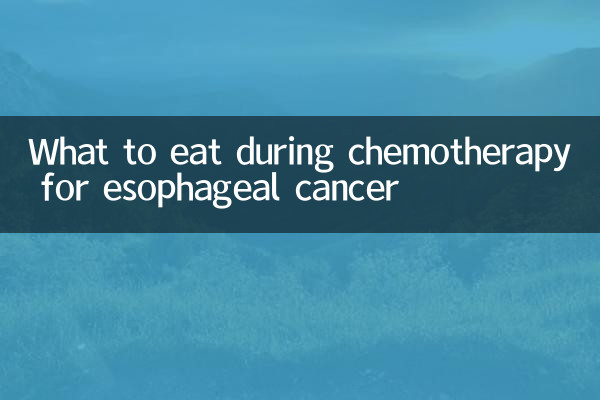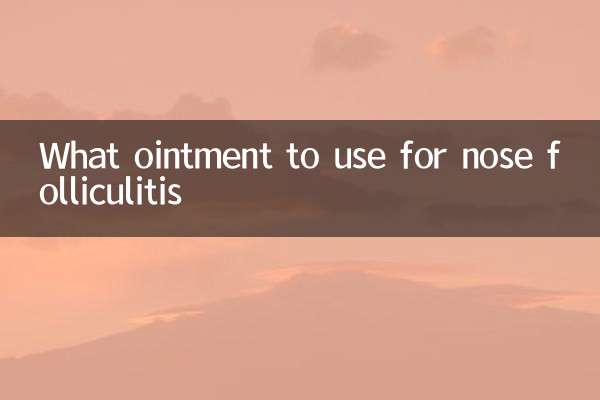What to eat during chemotherapy for esophageal cancer
During chemotherapy for esophageal cancer patients, dietary conditioning is very important. A reasonable diet can not only help patients reduce the side effects of chemotherapy, but also enhance immunity and promote physical recovery. The following are recommendations and considerations for eating during chemotherapy for esophageal cancer.
1. Dietary principles during chemotherapy

1.high protein diet: Chemotherapy will consume a lot of protein, and patients need to supplement high-quality protein, such as eggs, fish, soy products, etc.
2.easily digestible food: Patients with esophageal cancer may have difficulty swallowing due to tumor compression or chemotherapy side effects. It is recommended to choose soft, liquid or semi-liquid food.
3.Eat small meals often: Avoid eating too much at one time and reduce gastrointestinal burden.
4.avoid irritating foods: Spicy, greasy, cold or hot foods may aggravate discomfort.
2. Recommended food list
| food category | Recommended food | function |
|---|---|---|
| high protein food | Eggs, milk, fish, chicken, tofu | Promote cell repair and enhance immunity |
| Vitamin-rich foods | Broccoli, carrots, apples, kiwi | Antioxidant, reduce chemotherapy side effects |
| Easy to digest staple food | Porridge, noodles, soft rice, steamed buns | Reduce dysphagia and provide energy |
| blood nourishing food | Red dates, pork liver, spinach, red beans | Prevent anemia and improve fatigue |
3. Common side effects of chemotherapy and dietary strategies
| side effects | dietary advice |
|---|---|
| Nausea and vomiting | Drink ginger tea and mint water in small amounts and avoid greasy food |
| Oral ulcers | Choose warm and cool liquid foods, such as yogurt and fruit puree, and avoid acidic foods |
| Loss of appetite | Try appetizing foods such as hawthorn and lemon water, and eat them in multiple portions |
| constipation | Increase dietary fiber (oats, celery) and drink more water |
4. Diet taboos
1.Avoid pickled foods: Such as pickles and bacon, which may contain carcinogens.
2.Limit high-sugar foods: Sweet foods may aggravate the inflammatory response.
3.Avoid tobacco and alcohol: Tobacco and alcohol will irritate the esophageal mucosa and affect recovery.
5. Nutritional supplement suggestions
If the patient has difficulty eating, he or she can consult a doctor to use nutritional supplements (such as protein powder, vitamin tablets). Nasogastric feeding or intravenous nutritional support can be used when necessary.
6. Combination of psychology and diet
During chemotherapy, patients' mood swings may affect their appetite. Family members should provide care, create a relaxed dining environment, and encourage patients to eat small and frequent meals.
In short, the diet during chemotherapy for esophageal cancer needs to be adjusted individually, combined with the patient's actual situation and the doctor's advice, to scientifically combine nutrition to facilitate recovery.

check the details

check the details